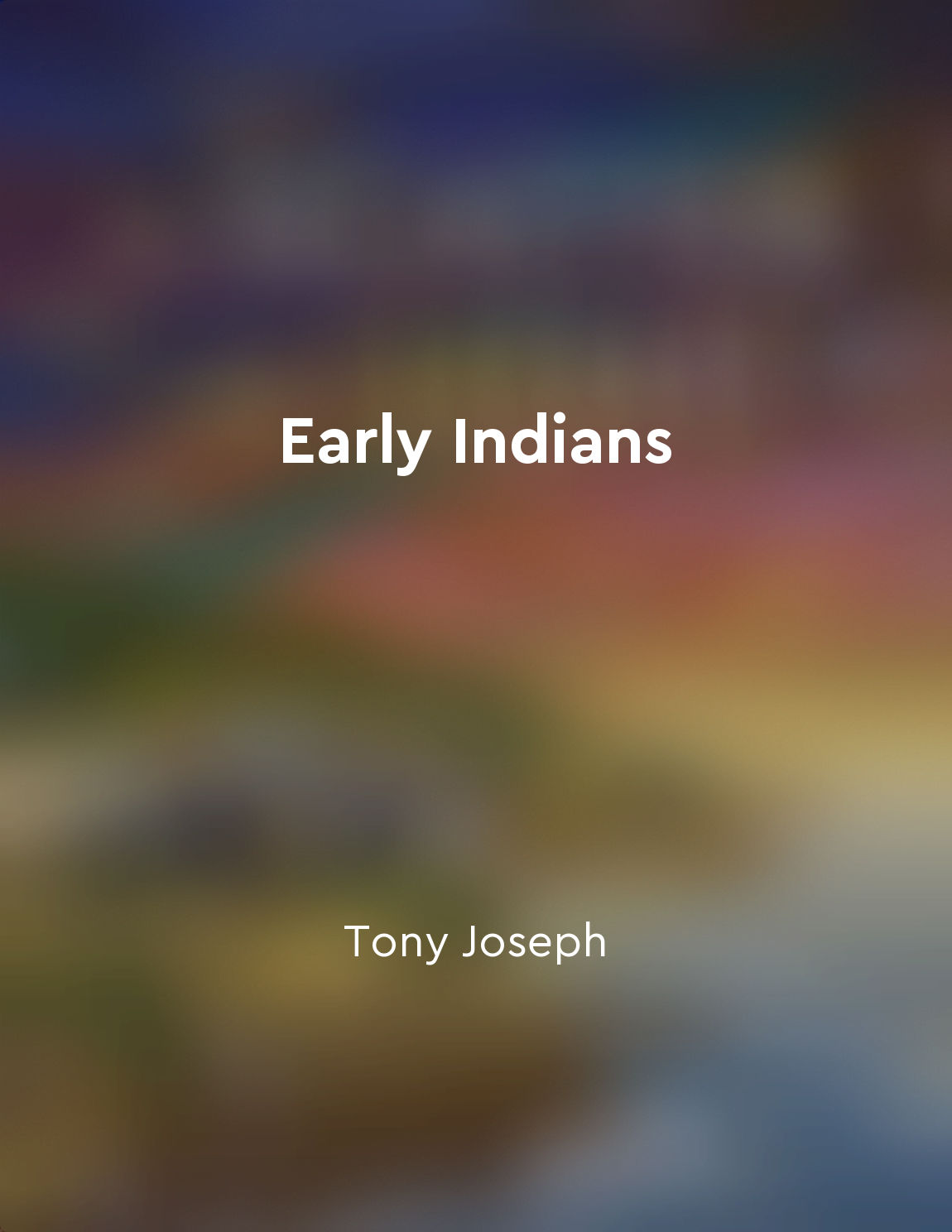First Indians migrated from Africa to the Indian subcontinent from "summary" of Early Indians by Tony Joseph
In the beginning, when the first humans ventured out of Africa some 60,000 years ago, they eventually reached the Indian subcontinent. These early migrants were hunter-gatherers who made their way across the Arabian Peninsula and arrived in the lush, fertile lands of the Indian subcontinent. This migration marked the beginning of human settlement in the region, laying the foundations for the diverse peoples and cultures that would emerge over the millennia. As these early humans settled in different parts of the Indian subcontinent, they adapted to their new environments and developed distinct cultural practices. Over time, these diverse groups of people interacted with each other, exchanging ideas, technologies, and languages. This interaction led to the development of complex societies and civilizations in the region, each with its own unique characteristics and contributions to the cultural tapestry of the Indian subcontinent. The genetic evidence gathered from modern-day populations in the Indian subcontinent provides further support for the theory that the first Indians migrated from Africa. Studies have shown that a significant portion of the genetic makeup of South Asians can be traced back to the early migrants from Africa. This genetic link serves as a powerful reminder of the shared history and interconnectedness of human populations across continents and centuries. By tracing the genetic and archaeological evidence, researchers have been able to piece together the story of how the first Indians migrated from Africa to the Indian subcontinent. This migration was a pivotal moment in human history, shaping the development of civilizations and cultures in the region. It highlights the shared origins and interconnectedness of all human beings, regardless of where they may currently reside. The journey of the first Indians from Africa to the Indian subcontinent is a testament to the resilience, adaptability, and ingenuity of the human spirit.Similar Posts
Policies should support human migration for cultural exchange
Policies that facilitate human migration can promote cultural exchange, enriching societies with new ideas, perspectives, and t...
Historical events shape societal trajectories
The course of history is not a random sequence of events. Rather, it follows a discernible pattern, shaped by the unique interp...

DNA evidence indicates multiple waves of migration
The genetic evidence shows that the ancestors of today's South Asians arrived in the subcontinent in multiple waves. The first ...
